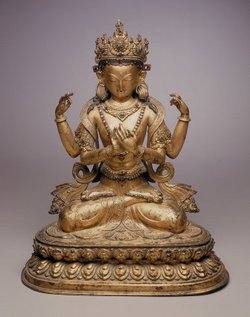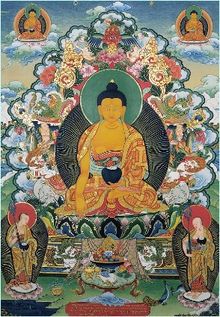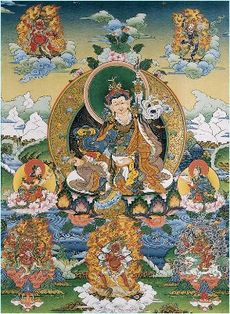The Rangjung Yeshe Gilded Palace of Dharmic Activity: Difference between revisions
No edit summary |
No edit summary |
||
| Line 19: | Line 19: | ||
''''' "It is all right not to know the Tibetan language. As long as you can read, you can absorb the [[Dharma]] terminology, the Buddhist key words. Many learned people have told me that the majority of Buddhist scriptures exist in the Tibetan language. Second is Chinese; after that there is Japanese, Pali, and so forth. Nevertheless, Tibetan is foremost in quantity. Someone who wants to do detailed studies, can study to their heart's delight in the Tibetan medium, without running out of texts".''''' | ''''' "It is all right not to know the Tibetan language. As long as you can read, you can absorb the [[Dharma]] terminology, the Buddhist key words. Many learned people have told me that the majority of Buddhist scriptures exist in the Tibetan language. Second is Chinese; after that there is Japanese, Pali, and so forth. Nevertheless, Tibetan is foremost in quantity. Someone who wants to do detailed studies, can study to their heart's delight in the Tibetan medium, without running out of texts".''''' | ||
Quoted from an interview with '''''[[Chokyi Nyima Rinpoche]]''''' | Quoted from an interview with '''''[[Chokyi Nyima Rinpoche]]''''' (<span class=TibUni12>ཆོས་ཀྱི་ཉི་མ་རིན་པོ་ཆེ་</span>) | ||
---- | ---- | ||
Revision as of 02:59, 11 March 2008
 (picture source unknown) |
--Alphabetical Listing:
"It is all right not to know the Tibetan language. As long as you can read, you can absorb the Dharma terminology, the Buddhist key words. Many learned people have told me that the majority of Buddhist scriptures exist in the Tibetan language. Second is Chinese; after that there is Japanese, Pali, and so forth. Nevertheless, Tibetan is foremost in quantity. Someone who wants to do detailed studies, can study to their heart's delight in the Tibetan medium, without running out of texts".
Quoted from an interview with Chokyi Nyima Rinpoche (ཆོས་ཀྱི་ཉི་མ་རིན་པོ་ཆེ་)
Note: To review the images above, their source, more details and availability, please see http://www.thangka.ru/gallery_e.html. Thank you Nick!
(Review other Categories)
-A Work in Progress) --Richard 18:37, 12 January 2008 (EST) (RWB)

